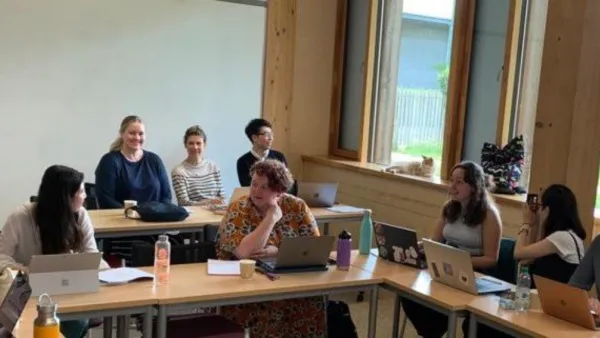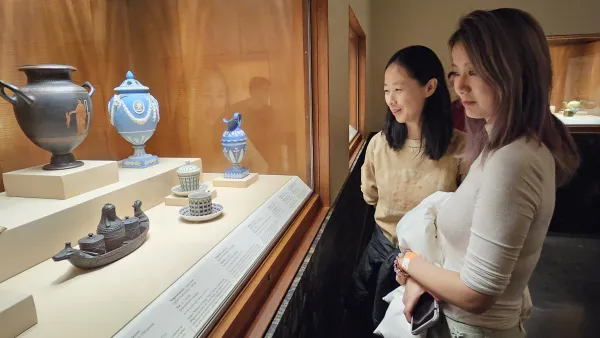Laurel Taylor, PhD candidate in Japanese and Comparative Literature, experienced a summer of translation and discovery
During the last week of July, 2023, I was lucky enough to join eleven other translators participating in the Japanese Workshop at the British Centre for Literary Translation (BCLT) Summer School. Based at the University of East Anglia in Norwich, England, this unique school gathers translators from several core language groups—this year they were Japanese, Korean, Taiwanese Chinese, Arabic, and Swiss French—as well as two multilingual workshops, one in prose and one in poetry, for an intensive week of workshopping, writing, and learning about publishing industry standards.
Each workshop is headed by a translator already well established in the field; indeed, they were veritable superstars as far as I was concerned—Anton Hur, Paige Morris, Daniel Hahn, Archna Sharma, Jeremy Tiang, just to name a few of the fabulous folks there. The Japanese workshop was headed by Dr. Hitomi Yoshio, a professor at Waseda University and translator for Mieko Kawakami and Natsuko Imamura. Each language-specific workshop translates texts from a guest author—for Japanese, novelist Kaori Fujino—and each workshop approach is, as I learned over the course of the week, vastly different, highlighting again and again the truth that readers and scholars are gradually beginning to accept: all translation is an act of interpretation and each translator's interpretations are necessarily inflected by that translator's experiences, literary critical viewpoints, stylistic peccadillos, and political agendas. And even more importantly, interpretation does not stop once the draft is submitted to the publisher. Editors, type setters, jacket designers, public relations consultants, marketing departments—every branch of a the publishing process imbues its own critical marks on the text, sometimes subtly and sometimes radically.
These critical interventions in literature and translation extend to BCLT's focus on equity as well. Many of the translators present did not grow up speaking English, and their inclusion in the program felt to me like a radical and radically necessary choice in the face of industries that often erroneously believe in the superiority of "native" speakers over those who grew up speaking other languages. Moving forward, BCLT has also established that every other year, their summer school will be held online, making it more accessible to those who might not be able to afford to travel to Norwich, those who might have disabilities that make travel difficult for them, and those who might not be able to take a week away from family or career to be physically in Norwich. The BCLT's focus on equity also extends to its partnership the National Centre for Writing, also located in Norwich—one of the translation mentorships being offered as of this year is specifically for translators who are D/deaf, disabled, or neurodivergent. All this to say that my experiences at BCLT encouraged me to think about aspects of race, gender, class, and body that all, whether we realize them or not, inflect the motions and mechanisms of literature in our world.
These thoughts were a natural extension of the community-building atmosphere that BCLT aims to foster. I was lucky enough to attend a Master's program in literary translation, and I've been to a few other translation workshops and conferences, but I've never had an experience quite like BCLT. Our schedules were jam-packed every day from 8 AM to 9 PM. While we spent a great deal of time in workshop, I'd actually argue that the most valuable aspect and perhaps the thing we actually spent the most time was the extended informal discussions with other burgeoning and established translators during meals and coffee breaks. In these moments, we traded information on our workshop experiences, our knowledge of publishing, our opinions on literature, our views of global politics in an admittedly worrying cultural moment, and also just our lives in general. At conferences, I always find myself running from panel to panel with little room for the kind of concentrated socialization and deep discussion I found myself having with my fellow BCLT participants. Compounded with the workshop itself, several plenary discussions on the publishing industry, and a final presentation of the fruits of each workshops' week of translation labor, I find myself immensely grateful to have floated for a week on BCLT's super-saturated sea of literature, language, and fellowship.


